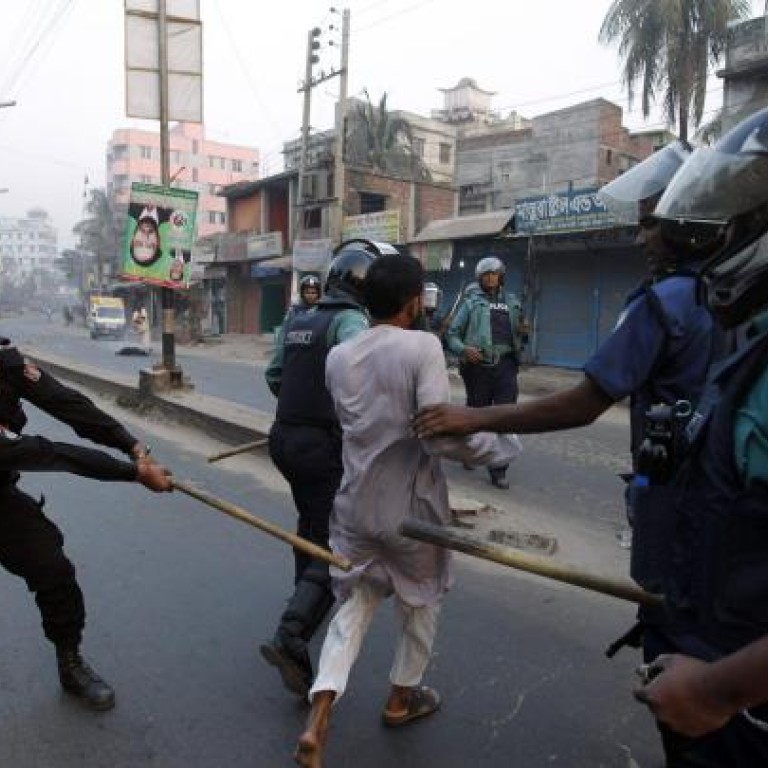
Riots erupt in Bangladesh after Islamist leader jailed for life
Senior opposition leader says charges over his life sentence for mass murder in the 1971 liberation war against Pakistan are false
Deadly riots broke out in Bangladeshi cities yesterday after a court sentenced a senior Islamist opposition leader to life in prison for mass murder during the 1971 liberation war against Pakistan.
Abdul Quader Molla, 64, the fourth-highest leader of the Jamaat-e-Islami party, was the first politician to be found guilty by the International Crimes Tribunal, a much-criticised domestic court based in Dhaka.
Molla cried "Allahu akbar" (God is great), and said the charges were false after presiding judge Obaidul Hassan delivered the verdict in a crowded and tightly guarded court.
"He deserved the death sentence because of the gravity of the crimes. But the court gave him life imprisonment," said Attorney General Mahbubey Alam, adding Molla was found guilty of five out of six charges including mass murder.
A man was shot dead in clashes with police in the port city of Chittagong as the ruling sparked immediate protests by Jamaat, the country's largest Islamic party, which enforced a nationwide strike in anticipation of the conviction.
"We fired in self-defence after hundreds of protesters attacked us with firearms and handmade bombs," deputy police commissioner Habibur Rahman said, adding that an unidentified man died of bullet wounds and 10 officers were injured.
We fired in self-defence after hundreds of protesters attacked us with firearms and handmade bombs
Police also clashed with demonstrators in the capital Dhaka, firing rubber bullets to disperse a group of protesters who were smashing vehicles.
In the northwestern city of Rajshahi, police fired tear gas and rubber bullets at about 500 Jamaat supporters who hurled a dozen homemade firebombs.
The verdict is the second by the tribunal. On January 21 a top TV preacher who is an ex-Jamaat official was sentenced to death in absentia for murder and genocide.
Ten other opposition figures - including the entire leadership of Jamaat and two from the main opposition Bangladesh Nationalist Party (BNP) - stand accused of war crimes.
Both Jamaat and BNP have labelled the cases show trials aimed at barring the leaders from upcoming polls. International rights groups have questioned the proceedings.
Prosecutors said during the war Molla was a senior figure in the then-student wing of Jamaat, while studying physics at Dhaka University, and was a member of a pro-Pakistan militia accused of killing hundreds of thousands of people.
"He directly participated in the killing of over 350 unarmed Bengali civilians including a poet and a top journalist," prosecutor Mohammad Ali said, adding he was known as the "Butcher of Mirpur", a Dhaka suburb.
"He killed my father and he got away. I am not happy," said Khandoker Abul Ahsan, son of Khandoker Abu Taleb, a well-known journalist killed during the 1971 war.
Security was tight in the capital with more than 10,000 police on patrol as war veterans and ruling party supporters held rival marches.
Schools were closed and many shops and businesses shuttered. Motorways linking Dhaka with other cities were largely empty.
Police said a young banker was burnt to death and four people were injured in Dhaka on Monday night after a bus was set on fire by suspected Jamaat activists protesting at the war crime trials.
